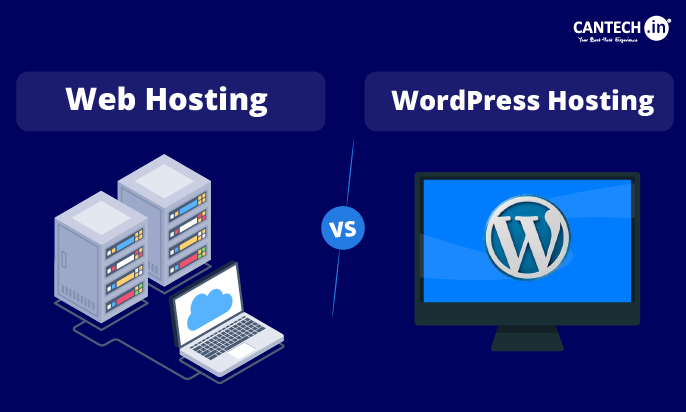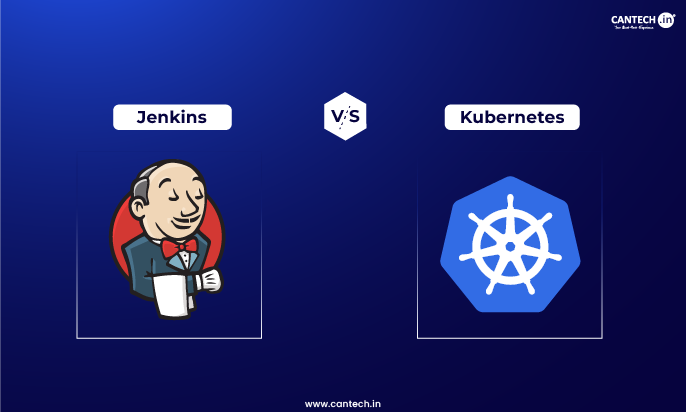Introduction
Web hosting and WordPress hosting are two similar-looking types but as you understand them deeper you will realize their differences go beyond basic features. The right or wrong choice will greatly affect the site’s performance and maintenance. So, comparing them and knowing the differences will help you make the decision.
Well, the key difference is that WordPress hosting is optimized and designed for WordPress websites so that they run smoothly without needing extra manual settings. This special setup provides various benefits, tools, and specialized features.
On the other hand, web hosting supports many different types of websites. It provides more general solutions but they are not specialized for WordPress websites for their performance optimization.
This blog will compare web hosting vs WordPress hosting so that you can understand the importance and drawbacks of each. The differences will help you get a more clear picture of which option is better for your website’s needs.
Web Hosting vs WordPress Hosting: The Basics
Let us understand in simple terms what is web hosting and WordPress hosting. Also, know the benefits and drawbacks that they have. This clarity will help you further understand the differences between web hosting vs WordPress hosting.
What Is Web Hosting?
Web hosting is a service through which you can make your website or application available to your users through the internet browser.
It provides necessary resources as per needs like storage space, bandwidth, RAM, and other features or tools.
Basically, when you buy a web hosting plan it gives the rent server space. Also, it comes with advanced technology so that it is secure and accessible to your users.
Moreover, it supports content management systems (CMS), website builders, and various other platforms.
All in all, web hosting is a common term for different types of hosting plans based on the size of your website and your level of expertise. You can select regular hosting types according to their specific project needs. Many customers find shared hosting to be an affordable web hosting for small websites.
The basic explanation of these types will give you a comprehensive understanding of ‘what is web hosting’.
Types of Web Hosting
Below are different types of web hosting.
Shared Hosting
Shared hosting is for small or personal sites that require limited resources. Its setup involves multiple websites sharing a single server’s resources. Shared hosting does not provide advanced server control and the hosting provider manages server updates, maintenance, and backups.
Thus, it is a low-cost and convenient choice.
VPS Hosting
Virtual Private Server (VPS) hosting is suitable for medium to large websites. VPS hosting setup gives dedicated virtual server resources on a physical server with more control and customization. Thus, your site gets isolated space which results in better performance than shared hosting.
Cloud Hosting
This modern web hosting type is ideal for moderate to high-traffic sites or apps. Cloud hosting uses multiple interconnected virtual servers so it can provide better uptime and resource availability. Also, this cloud infrastructure can deliver improved performance and scalability.
Dedicated Server Hosting
Dedicated hosting gives you an entire server. In other words, your one website or organization can use all the resources of the server because it is not shared with other users.
Thus, resource-intensive and high-traffic sites or apps can use this hosting type. Dedicated server hosting provides maximum control, customization, and flexibility. It ensures the best performance and security for large-scale operations. However, its prices are the highest.
WordPress Hosting
Yes, that’s right! Optimized WordPress hosting is one of the types of web hosting. However, this type comes with pre-installed WordPress and specialized server configurations to improve the speed and security of WordPress websites.
This package is a complete solution for WordPress users. We will discuss this type in detail after knowing the pros and cons of web hosting.
Advantages and Disadvantages of Web Hosting
Web hosting has various individual types that can provide many benefits & drawbacks to website owners in comparison to WordPress hosting.
Advantages of Web Hosting
- Web hosting providers guarantee high uptime with speed. They provide the best infrastructure and services for the same with an ideal type of hosting plan.
- 24/7 customer support assistance is available whenever you face technical issues.
- They often include security features to protect your website and user data from online threats and unauthorized access.
- It includes budget-friendly shared hosting plans. It is an affordable choice for beginners and small-scale businesses.
- You can easily upgrade resources and expand hosting plans as your website grows.
- It supports various types of platforms, sites, and applications for hosting because regular hosting types include shared, VPS, and dedicated hosting. Each hosting type serves different needs based on website traffic and resource requirements.
- Professional email addresses are available that enhance your brand image and credibility.
- It includes automated backup solutions, restorations, unique domain names, easy website builder tools, and developer tools.
Disadvantages of Web Hosting
- It provides limited technical support for specific issues unless of course, you have opted for managed services. Web hosts provide general technical support but not for issues related to specific CMS platforms like WordPress. So, if you are using a specific application, it can come with certain limitations.
- Website owners need to maintain their site hosting and handle updates for plugins, themes, and the WordPress core. This adds to your responsibilities and can be challenging if you do not have a technical background.
- It does not have an optimized server. So, you may miss out on performance-enhancing features that are available with specialized WordPress hosting.
- You may face possible restrictions on the use of specific plugins.
What is WordPress Hosting
Let us know discuss on what is WordPress hosting? It is a web hosting type. It is a specialized service designed to optimize websites built on the most widely used content management system (CMS) – the WordPress platform. Thus, they offer tailored services for WordPress users.
These hosting plans can further include options like shared WordPress hosting, VPS WordPress hosting, and cloud WordPress hosting.
So the basic difference between WordPress hosting and standard web hosting is simple – WordPress hosting provides features specifically for WordPress websites. Whereas, Standard web hosting offers more general services suitable for various website types.
Many businesses prefer WordPress hosting because it simplifies website management. However, standard web hosting can meet various content management systems and custom website needs.
The additional features and optimizations come with WordPress hosting like pre-installed plugins and specialized tools that enhance website performance, improve security, and simplify management.
Managed WordPress Hosting
Managed WordPress hosting is a type of WordPress web hosting.
Along with WordPress optimization features and tools, it provides a comprehensive service where the provider handles all technical aspects of running a WordPress site. It includes updates, backups, and security so you can focus solely on content.
Learn about:- What is Managed WordPress?
Who Uses WordPress Hosting?
- New website owners and beginners enjoy simplified setup and management with pre-installed plugins and user-friendly interfaces. It makes it easy to get started for those with limited technical experience.
- Small business owners can grow with WordPress hosting. The optimized performance and security features benefit small to medium-sized businesses.
- Personal or professional blogs get the benefits of WordPress hosting’s optimized environment for fast loading times.
- Web developers and digital agencies get flexibility and control to easily manage multiple sites so they often prefer WordPress hosting for client projects.
Advantages of WordPress Hosting
Below are the key advantages of WordPress hosting.
Easier Setup
WordPress hosting makes it all easy right from the initial setup process. The plans come with pre-installed plugins and themes so you can launch your sites without extensive technical knowledge.
Optimal Performance
Hosting plans are WordPress-optimized. Server configuration enhances site speed and performance. Moreover, it provides various features such as built-in caching software for site speed.
Regular Updates
Another essential Advantage of WordPress hosting is that it ensures your servers run the latest software and support automatic updates. This way, your site gets optimal performance and is compatible with new features.
Hassle-Free Management
You can focus on improving your site’s content and SEO strategies because the hosting provider takes care of technical aspects like updates and maintenance.
Enhanced Security
Advanced security features protect WordPress sites. Also, many providers offer automatic plugin updates to reduce the risk of security breaches.
Expert Support
Dedicated support teams are available who have expertise in managing WordPress sites. So, you can get help with specific issues related to your websites.
Efficient Plugin Management
Popular plugins are often pre-configured for better performance. The optimization of plugin functionality will eliminate the need for multiple installations.
Quick SSL Integration
Most plans include easy and free SSL certificates for secure connections to websites.
Automatic Backups
Automatic updates and backups regularly keep your sites secure and up to date.
Disadvantages of WordPress Hosting
Limited to WordPress
WordPress hosting means you can only use it for WordPress websites. If you plan to use other CMS platforms, you can use standard web hosting options.
Higher Costs
These plans come at a higher price than regular hosting plans.
Restrictions on Customization
It may limit customization options like restricted installation of certain software. So, it affects your freedom to personalize your sites fully.
Web Hosting vs WordPress Hosting: Understanding the Differences
Both web hosting and WordPress hosting services bring your site or app to the internet for your users, but they have different characteristics and functionalities. The below table of comparison highlights the essential points where they differ.

Choosing Between WordPress Hosting and Shared Hosting
When considering the options of WordPress hosting vs web hosting, let us decide one based on your needs and capabilities –
| Criteria | WordPress Hosting | Web Hosting |
| Use Case | If you are building a WordPress site and need specialized preinstalled features for the same, WordPress hosting is the perfect fit. | Web hosting is right when you want to create a website that is not on WordPress. It is for various applications and websites. |
| Maintenance | A hassle-free website maintenance is possible with managed WordPress hosting. The hosting provider handles updates and backups automatically. | You get control over your website’s technical elements and get the best flexibility to customize as per your needs. |
| Security Features | WordPress hosting has specialized plugins to secure your sites against threats. | Security features are available as per the plans that you choose. However, they are not specifically WordPress-optimized. |
| Budget Considerations | WordPress hosting pricing is higher but they offer specialized support and features tailored for your site. | If you have technical expertise, you may opt for a specific type of web hosting without WordPress optimization. |
| Support and Assistance | You can get dedicated support from WordPress experts. | The general 24/7 support may not address WordPress-specific challenges as effectively. |
| Experience Level | Beginners with WordPress sites may find hosting management easy with this type. | Web hosting offers the freedom to manage and customize your site as you wish if you are technically sound. |
Web Hosting and WordPress Hosting with Cantech
Cantech is an established leading web hosting provider in India. We have been offering reliable solutions for businesses of all sizes since 2009. We commit to optimal performance, security, and support. We provide everything like web hosting for small business, shared hosting for a small project or dedicated servers for a large enterprise. We have the right plan for all your needs.
Basic highlights for Cantech’s web hosting services:
- Industry-leading 99.97% Uptime
- 24/7 Customer Support
- Flexible hosting plans like shared, VPS, dedicated, cloud hosting, GPU, etc.
- Affordable options with the best quality services.
- Data Centers in India and Worldwide
WordPress Hosting
Cantech specializes in providing best WordPress hosting in India. We have the required expertise and capabilities for the same. The services include features that simplify management and provide the best performance & security. Below are the essential details of Cantech’s WordPress hosting:
- Pre-configured WordPress hosting and 1-click WordPress install simplifies the installation process
- Our hosting service keeps your WordPress site secure with automatic updates.
- Cantech guarantees performance for the best user experience.
- 30-Day Money-Back Guarantee
- Cantech includes comprehensive security measures.
- All the essential tools and support needed are available
Conclusion
This comprehensive understanding of web hosting vs WordPress hosting can help you decide the one best for you. You can evaluate your needs and different factors like if it is a simple blog or a complex e-commerce site. Traffic, budget, technical skills, and other aspects decide which one to choose.
Remember, the right hosting can enhance your website’s performance and user experience significantly. Thus, you must take your time to research, compare, and also get advice if necessary. Cantech can help you decide the best option for you. Contact our experts today!
FAQs for Web Hosting vs WordPress Hosting
Is WordPress hosting necessary?
WordPress websites can use WordPress hosting and get various benefits. These plans are optimized for performance for such sites. They also provide specialized support and eliminate common issues. However, if you are on a budget or have the necessary technical skills with your WordPress site, you can opt for other web hosting types too.
Can I host a WordPress site on shared hosting?
Yes, shared hosting is compatible with WordPress sites. It is an affordable beginner-friendly option that suits various platforms. However, opting for WordPress shared hosting can simplify the installation process and provide essential features tailored to WordPress. Its prices are higher than general shared hosting.
Which hosting option is suitable for my WordPress site?
WordPress hosting is ideal. It includes specialized features, tools, automatic updates, and maintenance. However, other hosting types may be appropriate even for WordPress users if you are on a budget and have technical expertise. WordPress hosting plans can be more in price in comparison.
What is the difference between web hosting and WordPress hosting?
Web hosting includes various hosting types and services for any type of website with various platforms.
On the other hand, WordPress hosting is optimized specifically for WordPress sites. Thus, it can give faster load times, improved security, and tailored support for the same
Can I use custom themes and plugins with WordPress hosting?
Yes, you can install custom themes and plugins on WordPress hosting. However, some managed WordPress hosting providers may limit certain plugins for better security.
Related:
What is Managed Web Hosting?
Managed Hosting vs Colocation








